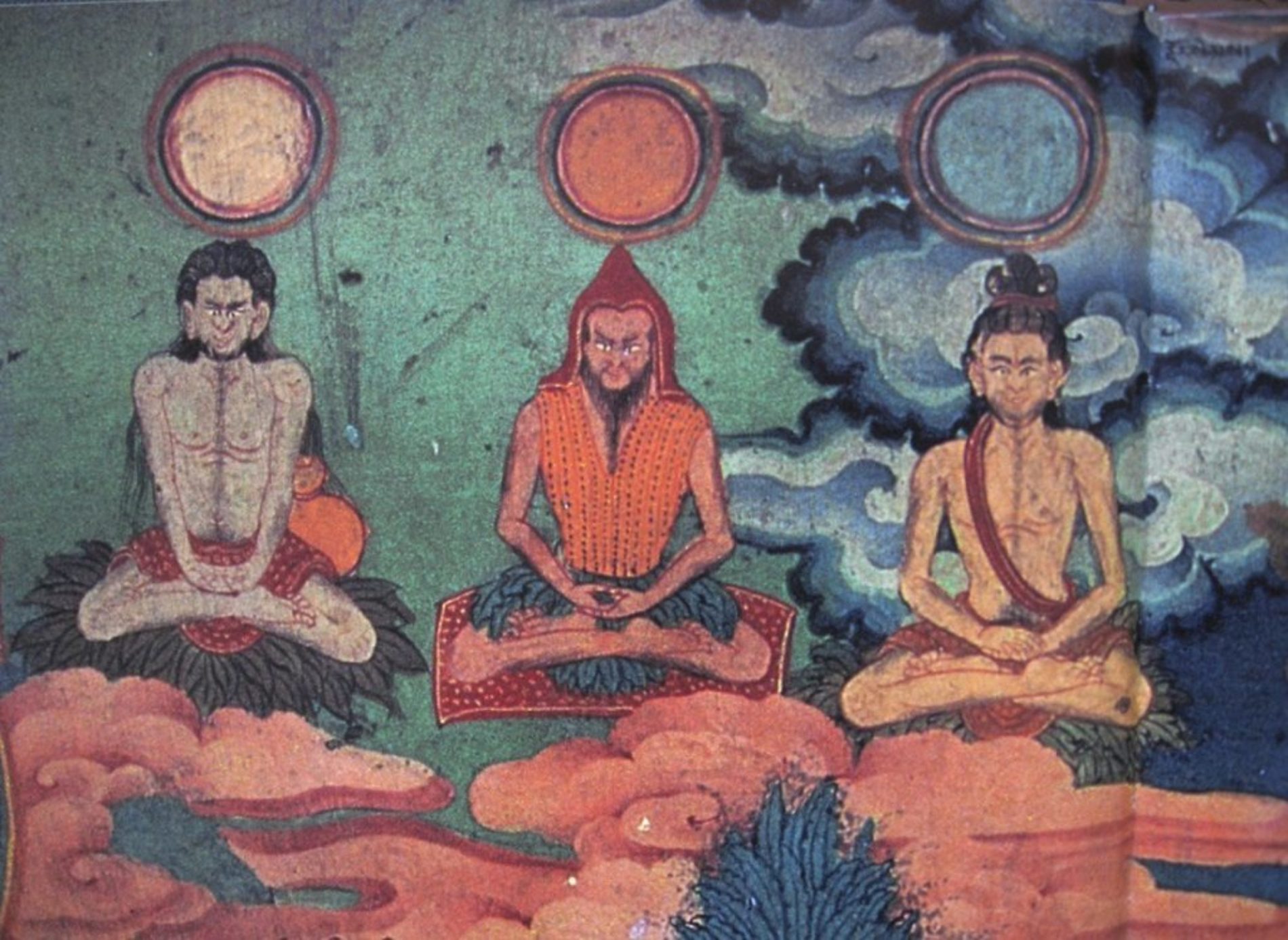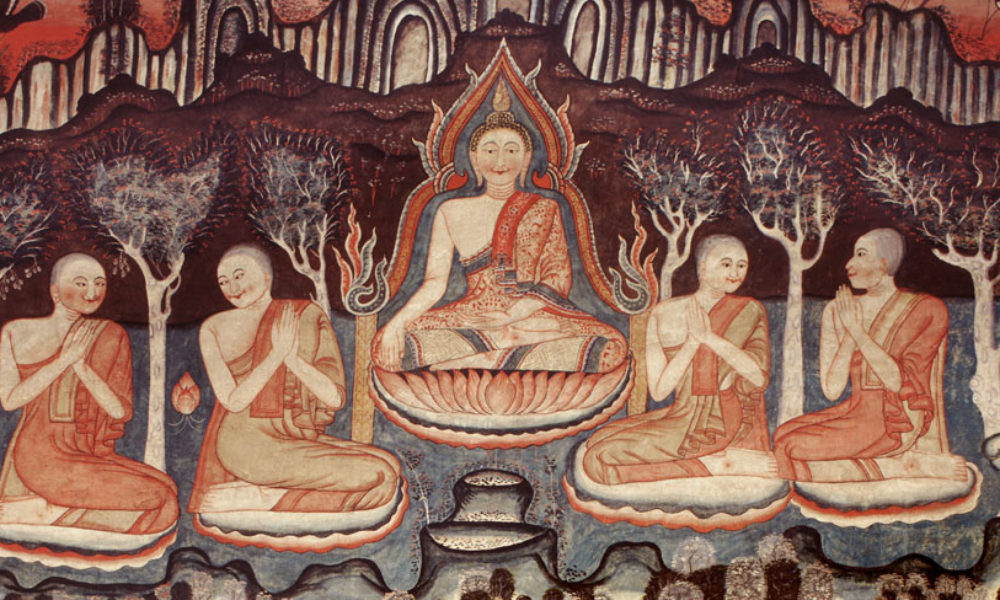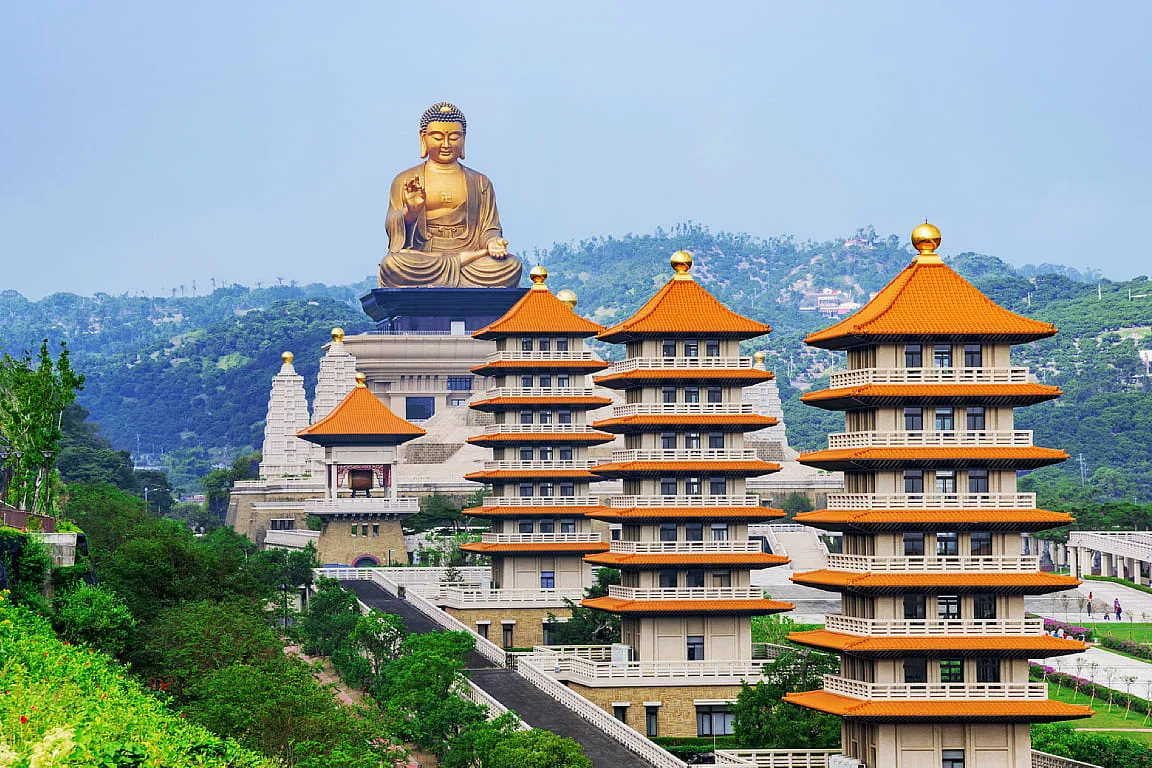Buddha’s cousin, his closest disciple, and the one who remembered all the teachings of Buddha – who was Ananda?
The Buddha was always accompanied by an attendant whose job it was to run messages for him, prepare his seat and to attend to his personal needs. For the first twenty years of his ministry, he had several attendants, Nagasamala, Upavana, Nagita, Cunda, Radha and others, but none of them proved to be suitable.
One day, when the Buddha decided to replace his present attendant, he called all the monks together and addressed them: “I am now getting old and wish to have someone as a permanent attendant who will obey my wishes in every way. Which of you would like to be my attendant?” All the monks enthusiastically offered their services, except Ananda, who modestly sat at the back in silence.
Later, when asked why he had not volunteered he replied that the Buddha knew best who to pick. When the Buddha indicated that he would like Ananda to be his personal attendant, Ananda said he would accept the position, but only on several conditions.
The first four conditions were that the Buddha should never give him any of the food that he received, nor any of the robes, that he should not be given, any special accommodation, and that he would not have to accompany the Buddha when he accepted invitations to people’s homes. Ananda insisted on these four conditions because he did not want people to think that he was serving the Buddha out of desire for material gain.
The last four conditions were related to Ananda’s desire to help in the promotion of the Dharma. As the Buddha’s personal attendant Ananda strived to free the Buddha from as many mundane activities as possible so he could concentrate on teaching the Dharma and helping people.
Ananda was always patient, tireless and unobtrusive, usually anticipating the Buddha’s needs.
Although Ananda’s main job was to take care of the Buddha’s needs, he always had time to be of service to others as well. He would often give talks on Dharma and indeed such a skilful teacher was he that sometimes the Buddha would ask him to give a talk in his place, or finish a talk that he had begun.
Ananda and His Wisdom
Life in the Sangha was not always easy for nuns. Most monks kept away from them, not wanting to be tempted. Some even discriminated against them. Ananda, on the other hand, was always ready to help them. It was he who encouraged the Buddha to ordain the first nuns, he was always ready to give Dharma talks to nuns and laywomen and encourage them in their practice, and they in turn often sought him out because of his sympathy for them.
The Buddha once said that of all his disciples, Ananda was pre-eminent of those who had heard much Dharma, who had a good memory, who had mastered the sequential order of what he had remembered and who was energetic.The Buddha could not write, indeed, although writing was known at the time, it was little used. Both during his life and for several centuries after his final Nirvana, his words were committed to memory and transmitted from one person to another. Ananda’s highly developed memory, plus the fact that he was constantly at the Buddha’s side, meant that he, more than any other person, was responsible for preserving and transmitting the Buddha’s teachings. This meant that people far from the Buddha’s presence could hear his teachings without the aid of books or the necessity of having to travel long distances.
After the Buddha’s final Nirvana five hundred enlightened monks convened a Council at Rajagaha for the purpose of collecting all the Buddha’s teachings and committing them to memory so they could be handed down to future generations. Because he knew so much Dharma it was essential that Ananda be present, but he was not yet enlightened. Now that he no longer had to look after the Buddha’s needs, he had more time to meditate and so he began to practise with exceptional diligence, hoping that he could attain enlightenment before the Council started.
During the evening before the Council he sat meditating, convinced that he would not be able to attain enlightenment by the next morning. So he gave up and decided to lie down and sleep. As his head touched the pillow he became enlightened. Ananda was warmly welcomed at the Council the next day and over the following months he recited thousands of discourses that he had heard, commencing each recitation with the words: ‘Thus have I heard’ (Evam me sutam). Because of his enormous contributions to the preservation of the Dharma, Ananda was sometimes known as: ‘The Keeper of the Dharma Store’ (Dharmabhandagarika).
- Follow us on Instagram, and Facebook.
- Subscribe to our YouTube channel
- Email us at hi@meditationmarathon.me




